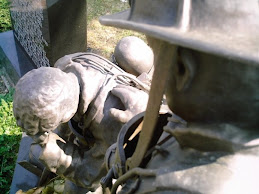By Joseph Kellard
Touted as the most authoritative, comprehensive book on the Sovietlabor camps, "Gulag" by Washington Post columnist AnneApplebaum recounts the many facets of this decades-long slavesystem. Among her topics are the gulag's origin and expansion, thedistinctive work and living conditions of the various camps, andhow prisoners survived, rebelled, escaped--and died.
While "Gulag" offered what were, to me, some surprising details--such [as] that numerous prisoners were actually released--Applebaumalways returns, whether implicitly or explicitly, to the essential evilof the camps.
One example is in her comparison of Nazi and Soviet camps. Sheargues that the Soviet camps focused more on exploiting labor thanon deliberately killing "enemies of the people," whereas the Naziconcentration camps, where a Jew's death was virtually assured, thereverse was true. Gulag prisoners usually died, not by beingdeliberately killed, but by the system's "gross inefficiency andneglect." Yet Applebaum demonstrates, for example, that certainlabor camp projects, such as useless grand canals, reflected thecommunists' desire to kill for killing's sake:
"A propaganda slogan declared that the ' Danube-Black Sea Canal isthe tomb of the Romanian bourgeoisie!' Given that up to 200,000people may have died building it, that may have indeed been thecanal's real purpose." (p.456)
In her epilogue of this primarily journalistic account, Applebaumproperly touches on such matters as the post-Soviet population'swidespread evasion of this important part of its nation's history, andpoints to consequences of this (e.g., Putin's authoritarian Russia). But for a book of this scale and subject, she draws virtually nocause-and-effect relationship between communist ideology and thegulag. Worse, here is Applebaum's conclusive philosophic commentary:
"Only our ability to debase and destroy and dehumanize our fellowman has been--and will be-- repeated again and again" and "themore we know of the specific circumstances which led to eachepisode of mass torture and mass murder, the better we willunderstand the darker side of our own human nature."
In other words, it's not ideas but evil "human nature" thatultimately caused the gulag. To the Objectivist reader, however, "Gulag" offers manyconcretizations of communism. As I read the various injusticesSoviet citizens suffered under this slave system (within a slavestate), I drew many parallels between these and what AmericanCommunists and other leftists leveled then against capitalism andthe United States. Here's just one of various parallels, and recallhere the leftists' charges that capitalists "exploited" their workersand that the Soviet Union held the most promise for "the commonman."
"Ivan Nikishov, who became the boss of Dalstroi in 1939, in thewake of the purges, and held the post until 1948, became infamousfor accumulating riches in the middle of desperate poverty. [Prisonbosses] even began to compete with one another, in a fantasticversion of keeping up with the Jonses." (p.267-268)
Please post a comment about this article. For private comments, email Joseph Kellard at Theainet1@optonline.net.
Copyright © 2007 Joseph Kellard
Tuesday, June 26, 2007
Subscribe to:
Post Comments (Atom)































+-+June+2009.jpg)











No comments:
Post a Comment